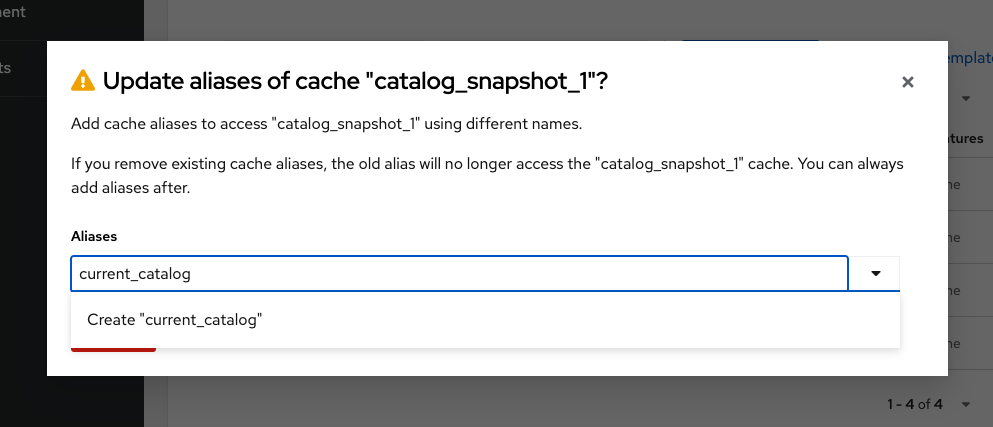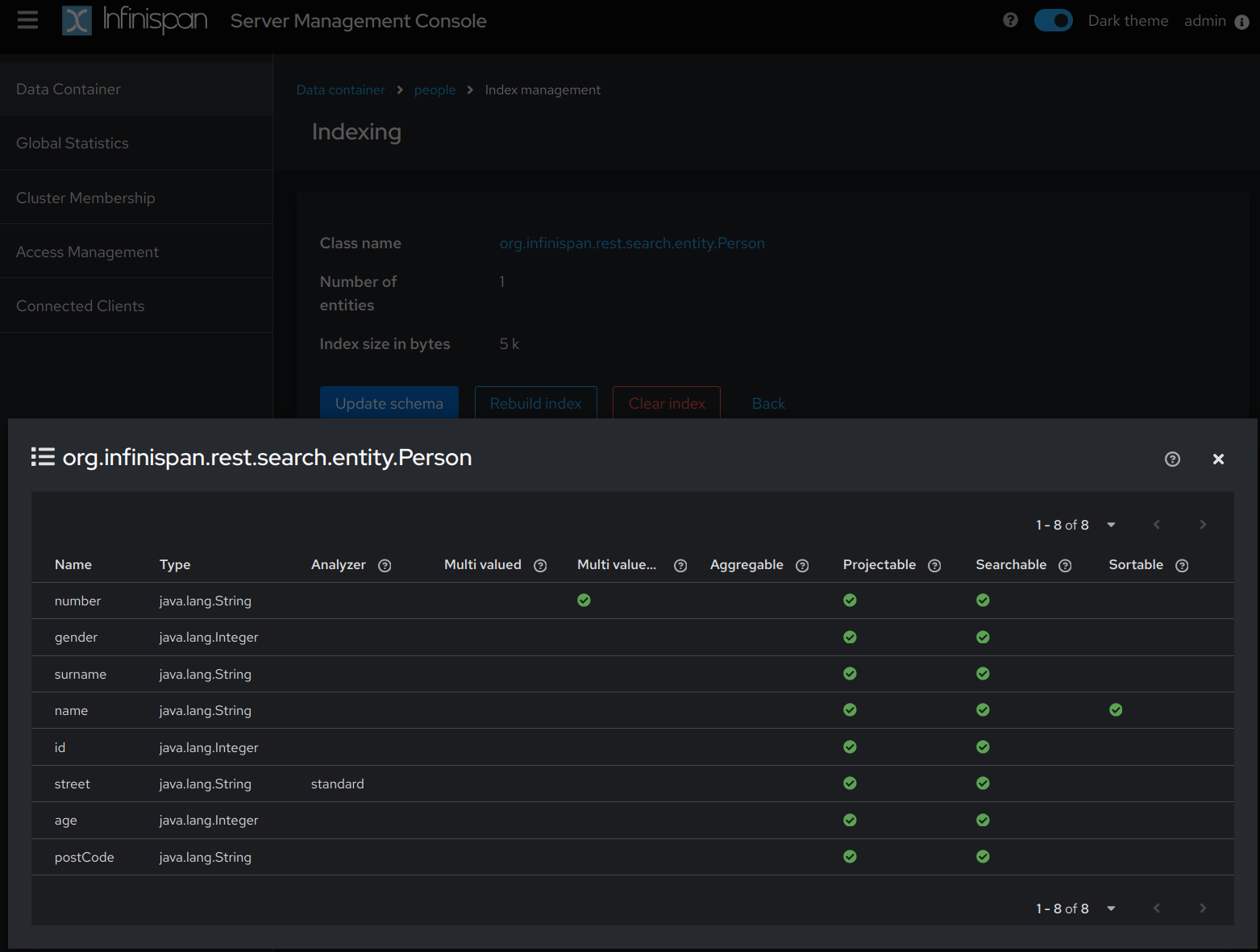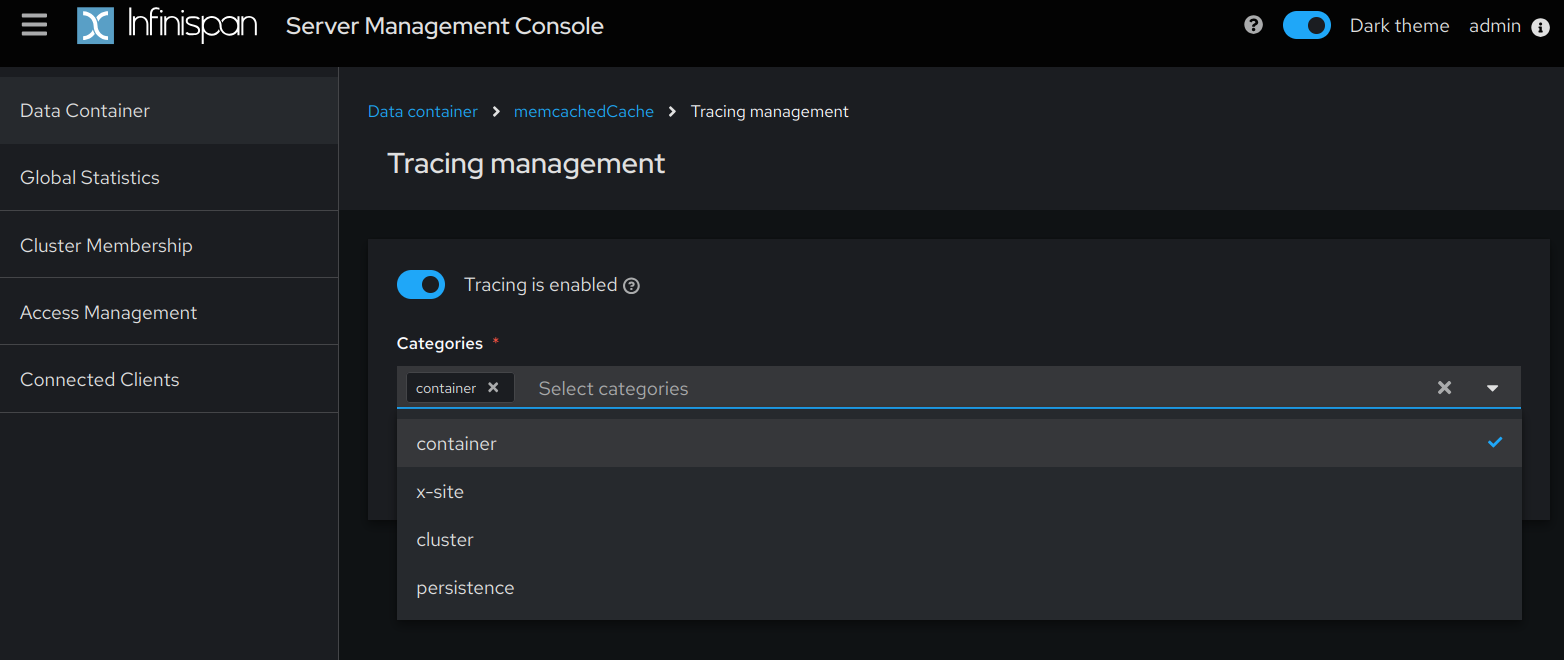Infinispan 15.1.0.Final

"It Was All A Dream"
No, man. This time it’s for real!
Freshly brewed, for the fine connoisseurs of distributed caching, we are proud to present Infinispan 15.1, codenamed "It Was All A Dream"

Just like its beer namesake, this is a stout release, packed with flavor and features. Here’s a quick rundown of what’s new:
Query
Spatial queries
Infinispan now supports geographical queries. The feature allows users to perform queries based on geographical criteria. Spatial predicates can be used in combination with other predicates to implement additional filtering. Moreover, spatial fields can be used to project distances and to order the results according to distances from a given geographical point.
You can define on the same entity one or more spatial fields. Each of them denotes a pair of geographical coordinates: latitude and longitude.
Infinispan’s query language supports three spatial predicates: within circle, within polygon and within box.
If we want to sort our results according to the distance from a given query point, we can use the order by distance clause. We can also project the distances from the same query point.
Different units of measurement can be used to denote the radius of the circle predicate or to project the distances from a given query point.
Read our recent blog post and the documentation for more information.
Nested entities joins
This contribution has been made by András Gyuró and Gabor Ori from our amazing Infinispan open source community. A big thanks to them!
The feature allows to exploit the nested (not-flattened) relations between root entities and embedded entities in order to join their values to be queried.
As an example, let’s suppose we have an entity Team having a nested embedded field named players.
It is possible to execute a query which selects all the teams having at least one player having number 7 and at the same time having name Ryan or Will. A possible query in this case could be:
select t.name from model.Team t
join t.players p
where (p.name ='Ryan' AND p.number=7) or (p.name='Will' AND p.number=7)Non-blocking query API
A new addition has been added to the Query API. Non-blocking/reactive alternative methods are available to query your data. Those methods are:
Publisher<T> publish(int maxBatchSize);
CompletionStage<QueryResult<T>> executeAsync();
CompletionStage<Integer> executeStatementAsync();The new methods are experimental, meaning they may change in the future, and only available for the Hot Rod client (remote query).
New Java Hot Rod client
A brand-new client implementation has been introduced replacing the current hotrod-client module. The public API is still the same so the code can be used without changes. The new client completely removes the prior connection pool, instead opting for a single pipelined channel to each server instead. The client configuration is thus ignored and deprecated.
Due to only having a single client connection to each server users should see a substantial decrease in file descriptors in use for both server and client applications. Also, the majority of usage should see performance gains with the new client. The opposite may occur in cases of a single server with extremely high concurrency usage on the client.
The new client has dropped support for HotRod protocols older than 3.0, which is from Infinispan 10. This was mostly done as some features in some versions of 2 require dedicated sockets which is not acceptable in the new client.
The streaming cache commands (InputStream and OutputStream-based) had to be reworked to support a single socket, and thus we had to add a new Hot Rod protocol 4.1 to support these commands. If you are using the new client you can only use these streaming commands if your server also supports 4.1 or newer.
If you find the need to use a Hot Rod protocol version older than 3.0 the prior client can be used by importing the hotrod-client-legacy module instead.
Cache aliases
Infinispan 15.0 had cache aliases that only worked within the context of the RESP connector. Now this functionality has been extended to all parts of Infinispan, including all other protocols as well as embedded.
Certificate reloading
SSL/TLS certificates have an expiration date, after which they will no longer be valid. The process of renewing a certificate is also known as rotation. Infinispan now monitors the keystore files for changes and automatically reloads them without requiring a server or client restart.
|
Note
|
to ensure seamless operations during certificate rotation, use certificates signed by a Certificate Authority and configure both server and client trust stores with the CA certificate. The use of self-signed certificates will cause temporary handshake failures until all clients and servers have been updated. |
Time quantities in configuration
Wherever a time quantity, such as a timeout or an interval, is specified within a declarative configuration, it is possible to describe it using time units:
* ms: milliseconds
* s: seconds
* m: minutes
* h: hours
* d: days
For example:
{ "distributed-cache": { "remote-timeout": "35s"} }Fixes
Too many to count. We want to thank our amazing community members for reporting issues and helping out with providing detailed information that helps us debug and solve problems.
Deprecations and removals
The main change is the removal of the old server templates (like org.infinispan.DIST_SYNC) which were redundant and didn’t provide any advantage to defining configurations.
JDK requirements
Like for 15.0, you will need at least JDK 17 in order to use Infinispan 15.1. Infinispan also supports JDK 21 and the recently released JDK 23.
Documentation
As usual, many improvements, updates and fixes.
Release notes
You can look at the release notes to see what was changed since our last development build.
Get them from our download page.
Get it, Use it, Ask us!
We’re hard at work on new features, improvements and fixes, so watch this space for more announcements!Please, download and test the latest release.
The source code is hosted on GitHub. If you need to report a bug or request a new feature, look for a similar one on our GitHub issues tracker. If you don’t find any, create a new issue.
If you have questions, are experiencing a bug or want advice on using Infinispan, you can use GitHub discussions. We will do our best to answer you as soon as we can.
The Infinispan community uses Zulip for real-time communications. Join us using either a web-browser or a dedicated application on the Infinispan chat.







